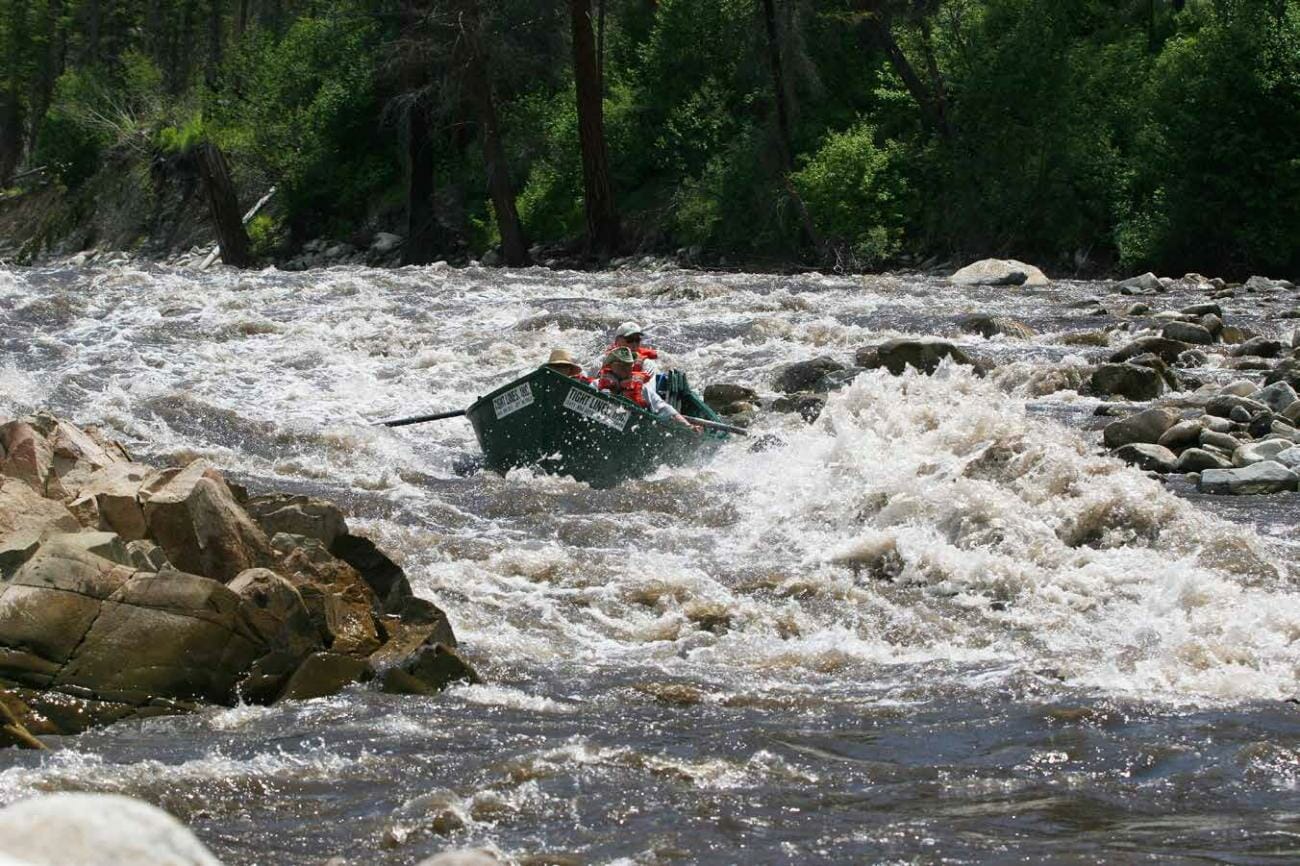Having worked for Trout Unlimited for 16 years and been an active part of the fly-fishing world for almost twice that long, I’m never surprised when good people in the industry step up when their friends and neighbors are in need.
A little more than a year ago, as the pandemic truly set in and life as we know it changed around the globe, Sweetwater Fly Shop Owner Dan Gigone’s first thoughts weren’t of his business or how it would survive the coronavirus outbreak and the subsequent lockdowns that came with it. Instead, he looked at his booking coordinator for his Livingston, Mont., fly shop, Mollie Simpkins, and said, “We should do something for the guides.”
The guides, of course, were the hardest hit at the outset of the COVID-19 outbreak. Independent contractors with sparse access to things like health insurance or other benefits a lot of us take for granted, Gigone’s fly fishing guides in southwest Montana were left without work as clients cancelled trips and stay-at-home orders were issued across the state. While Gigone was confident that, by navigating the federal relief channels that opened up, Sweetwater would weather the storm, he wasn’t sure his guides would be so lucky.
Not only was the harm to these hard-working, front-line fly-fishing workers financial, but it led to significant mental health issues among the community, as guides and their families struggled to navigate relief systems, provide for themselves and their families and figure out what would come next.
So Simpkins teamed up with longtime guide and fly fishing industry veteran KynsLee Scott, took Gigone’s idea and helped make it become a reality. The Guide Relief Program was born. It began by helping fishing guides in Montana with the challenges of the federal CARE Act and how to access relief funds. But, as Simpkins noted, there was much more work to do than just helping the guide community heal financially. Her proudest achievement during the embryonic stages of the GRP has been working to arrange for health care and mental health care for a community of largely independent personalities who have likely never experienced the level of uncertainty that accompanied the pandemic when it first hit.
Over the course of the last year, the GRP has quietly served as a resource for Montana fishing guides. Or, as Simpkins put it’s “a warehouse of resources” for guides that might need a hand. But as of this week, the GRP is an official non-profit entity, and anyone can participate in helping Montana’s guides continue to recover from the outbreak and get back on their feet and ready for another season on the water.
For now, Simpkins says, the program is focusing on fishing guides in Montana, but there is purposely room for growth as partners continue to come on board. The program has collected a robust cadre of supporters, starting, of course, with Sweetwater Fly Shop, and including big names in the fishing and outdoor recreation industries. Companies like Simms, Yeti, St. Croix and Sawyer Paddles are joined by TU in the effort to keep the guide community afloat ahead of what promises to be a crazy-busy summer in southwest Montana and travel-hungry anglers weary of being stuck at home return to the region in droves to chase trout.
“For now, we’re sticking with Montana, but in time, we believe we can grow into something very special for guides everywhere, and not just fishing guides,” Simpkins says. “Who’s to say that, in time, we’re not going to be able to expand and help hunting guides and climbing guides, all independent contractors? And not just in Montana. We’d love to increase our reach.”
“If you think about it, guides are our front-line workers in this industry. They spend more face time with customers than anyone else, and they are ambassadors for fishing and help us all grow and get better at what we do. Why wouldn’t we do everything we can to help them?”
Mollie Simpkins, Executive Director/Co-Founder, Guide Relief Program
That, of course, depends on the amount of support the program can garner and the financial resources it can access in order to expand and help more guides in more places.
Right now, the program is working to become a clearing house for financial donations from the angling community at large while working to direct that funding to guides who need immediate help, or to steer guides to resources like the CARE Act, the federal Payroll Protection Program and to assist with unemployment resources. Additionally, the program has produced a suite of videos designed to help guides with mental health issues and how to recognize problems before they become serious.
“If you think about it,” Simpkins says, “guides are our front-line workers in this industry. They spend more face time with customers than anyone else, and they are ambassadors for fishing and help us all grow and get better at what we do.
“Why wouldn’t we do everything we can to help them?”
It’s a good question. If you’d like to help Montana guides weather this storm, and perhaps contribute to the growth of a program that could, in time, be a great resource for guides of all ilk from all over the country, consider a donation to the GRP. And, if you’re like a lot of anglers itching to get out again and travel, remember that guides are so much more than folks who just show you where the fish are — they’re teachers, mentors and, for many of us, dear friends.



